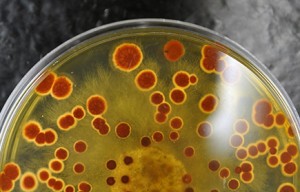ASTM E1153: Efficacy of Sanitizers Recommended for Inanimate, Hard, Non-porous, Non-Food Contact Surfaces
The ASTM E1153 method is an antimicrobial test designed to determine the effectiveness of sanitizers on pre-cleaned, inanimate, potent, non-porous and non-food contact surfaces.
The aim of this method is to evaluate whether chemicals intended for such applications achieve a validated percent reduction compared to a control, for a given microbial species on the treated surface.
Standard ASTM E1153 testing is performed against:
-
Staphylococcus aureus (S. aureus)
-
Klebsiella pneumoniae (K. pneumoniae)
-
Enterobacter aerogenes also known as Klebsiella aerogenes (K. aerogenes)
The test can include a broad range of bacterial strains. Additionally, this antimicrobial method can incorporate a durability assessment by soiling or hard water, as well as customer specified test conditions such as varying contact times at which the product’s performance is evaluated.
Standard test conditions typically involve 5- or 10-minute bacterial contact with the test material. Customer selected test organisms are prepared 4 days in advance by multiple 24-hour passes of the culture, followed by a final incubation of 48 hours. The produced inoculum is later utilized as the inoculum for the test surface of the non-porous substrate. The process of creating such inoculum provides a robust, homogenous culture for use in the testing.
ASTM E1153 is suitable for various products including spray-based, liquid, and towelette-based antimicrobials. Per regulatory requirements, testing in accordance with Good Laboratory Practice (GLP) may be determined appropriate. At Situ Biosciences, we offer both GLP or non-GLP testing.
Additional ASTM methods designated for the assessment of antimicrobial effectiveness include ASTM E1052 and ASTM E1053.
For more information on Antimicrobial Testing email info@situtest.com or call our laboratory at (847) 483-9950.

